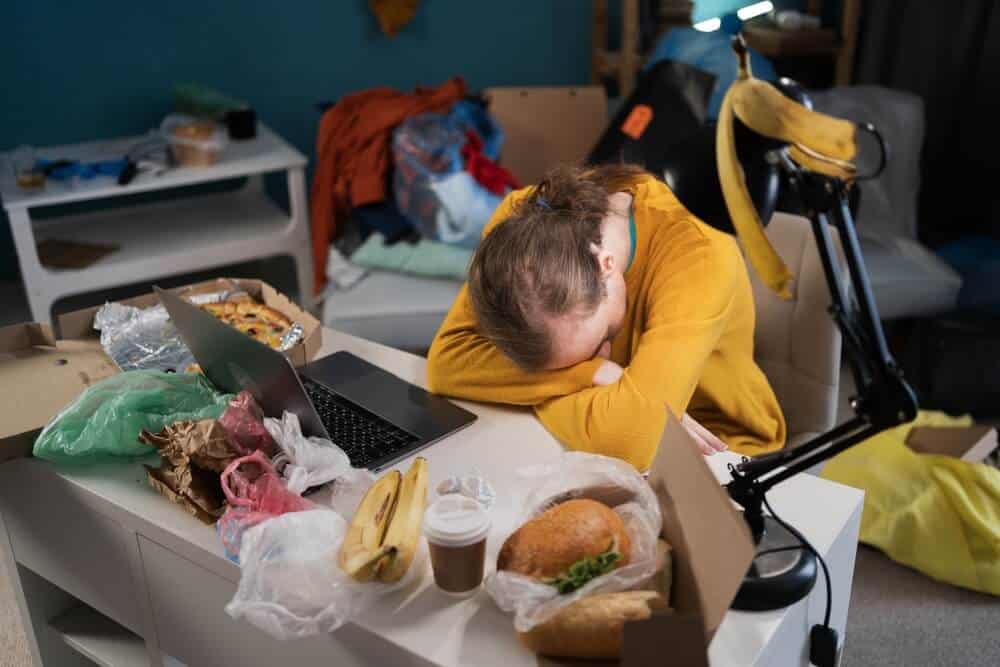Hoarding is a deeply personal and often misunderstood condition. For those on the outside looking in, it may seem like an easily fixable problem. However, for the person experiencing it, hoarding can be tied to significant emotional and psychological issues. The first step in knowing how to help a hoarder who doesn’t want help is understanding that you cannot force someone to change their behavior. Compassion, patience, and a strategic approach are essential.
The Challenge of Resistance
Recognizing the Signs
When a loved one is struggling with hoarding, it can be incredibly frustrating to see them resist help. They might not recognize the severity of the issue, or they may feel a profound sense of shame and guilt. This resistance is not uncommon and can be very challenging for friends and family. It’s important to approach the situation with empathy and understanding.
The Role of Family and Friends
Family and friends often find themselves in a difficult position. They want to help but are unsure how to do so without causing more harm. The key is to offer support without being overbearing. This might mean starting with small, non-threatening conversations about the problem rather than jumping straight into solutions.
Practical Steps to Offer Support
Encouragement to Seek Therapy
One of the most effective ways to help a hoarder who doesn’t want help is to encourage them to see a therapist. Often, hoarding is a symptom of deeper psychological issues such as anxiety, depression, or trauma. A mental health professional can provide the necessary support and coping strategies to address these underlying problems.
Contacting Local Health Departments
In situations where hoarding has become a significant health hazard, reaching out to local health departments can be a crucial step. Many cities have dedicated departments that can assist with these cases. For example, in larger cities like Minneapolis or St. Paul, the health department may have programs and resources specifically designed to handle hoarding.
Utilizing Code Enforcement
If the situation does not improve through initial interventions, code enforcement may become necessary. This is a more drastic measure and involves using the authority of local government agencies to enforce health and safety regulations. While this approach can create tension, it sometimes provides the push needed for a hoarder to recognize the seriousness of their condition and seek help.
The Importance of Professional Help
Psychological Support
As previously mentioned, therapy is a crucial component in addressing hoarding behavior. It’s not just about cleaning up the clutter; it’s about understanding and treating the emotional issues at the core of the hoarding. A therapist can work with the individual to develop healthier coping mechanisms and gradually reduce their dependence on their possessions.
Professional Cleanup Services
In addition to psychological support, professional cleanup services can be invaluable. These companies specialize in handling hoarding situations and can do so in a respectful and non-judgmental manner. They can help create a clean and safe living environment, which can be a significant step toward recovery.
Encouraging Small Changes
Starting Small
Encouraging a hoarder to make small changes can often be more effective than pushing for a complete overhaul. This might mean focusing on one area of the home at a time or setting small, manageable goals. Celebrating these small victories can build momentum and confidence.
Building Trust
Building trust is essential in helping a hoarder who doesn’t want help. Show them that you’re there to support them, not judge them. This trust can make them more open to accepting help and more willing to work toward change.
Conclusion

Helping a hoarder who doesn’t want help is a delicate and often challenging process. It requires a combination of empathy, patience, and strategic action. Encourage therapy, utilize local health resources, and consider professional cleanup services to support your loved one. Remember, the goal is not just to clean up their home, but to help them address the underlying issues contributing to their hoarding behavior. For professional assistance, contact Scene Clean today.






